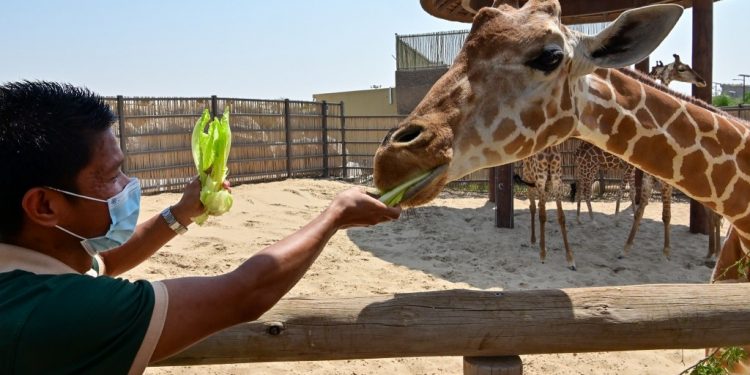Recent incidents of animal cruelty in Indonesian zoos, which often keep underfed animals in tiny cages, have led to international outrage, further damaging Indonesia’s already poor reputation in animal welfare.
But there’s some good news.
Bali Safari and Marine Park, owned by Taman Safari, will now provide animal conservation and education on animal welfare, making them one of a few institutions in Indonesia dedicated to raising awareness and protection of wildlife.
The World Animal Protection currently gives Indonesia an overall Animal Protection Index of D, with A being the highest and G the lowest.
In regards to animals in captivity, the index indicates there is legislation in place already to protect captive animals in Indonesia, but it is only partially applied throughout the country.
A 2015 report published by the Ministry of Environment and Forestry said there are only four wildlife parks in the country, three of them owned by Taman Safari, including the Bali Safari and Marine Park.
Bali Safari and Marine Park’s veterinarian, Kadek Kesuma Atmadja, said the park’s conservation and breeding programs show the public the importance of what the park does.
“We are a conservation institution and we want to show the public all the positive things we do,” Kadek Kesuma said.
The park runs numerous breeding programs for native Indonesian and Balinese animals as well as foreign species.
Through work with local villages and the government, the park has been able to successfully breed and participate in release programs for the rare Bali Mynah bird, also known as the Bali Starling.
The park commenced its Bali Mynah breeding program in 2008 and now has 40 birds in captivity.
Up to 2000 guests visit the park daily. The park’s three educational shows, including one on an elephant and one on the tiger, are big hits with the visitors.
Park veterinarian Yohana said through work with the education department, the park wants to promote public awareness of habitat destruction and poaching of native Indonesian species, including the endangered Babirusa of Sulawesi (Babyrousa celebensis).
“Babirusa as is endemic to Sulawesi and has a wild population of less than 10,000 at the moment. The number is expected to fall further thanks to poaching and habitat destruction,” Yohana said.
“We are now concentrating on captive breeding because we think if we breed more we can have a sustainable wild population.”
Despite its well-known conservation efforts, Taman Safari is no stranger to the controversy around its own treatment of captive animals.
In 2016, Taman Safari Bogor came under scrutiny after a video of an allegedly drugged lion taking photos with tourists went viral.
Many still criticize Taman Safari’s and Bali Safari and Marine Park’s treatment of some animals but when compared to other Indonesian wildlife parks, such as the Bandung Zoo, the park is certainly taking big steps in the right direction.



